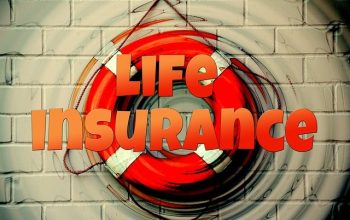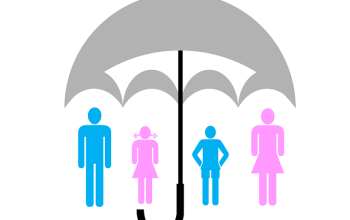General Liability Insurance is a fundamental type of business insurance that covers third-party claims involving bodily injury, property damage, and personal or advertising injuries, safeguarding businesses against a range of risks. Professional Liability Insurance, also known as Errors and Omissions Insurance, is essential for professionals offering advice or services, providing protection against allegations of negligence or work-related errors that result in financial loss to clients. Small businesses can obtain tailored Business Liability Coverage within a Small Business Insurance policy for protections not fully covered by General Liability Insurance. Product Liability Insurance, under the umbrella of Commercial Liability Insurance, is critical for manufacturers and retailers to guard against liability for harm caused by product defects. Understanding and combining these insurance types—General Liability, Professional Liability, and Product Liability within Public and Commercial Liability Insurance frameworks—is key for effective risk management for any business, especially small enterprises, to maintain operational confidence and financial stability in the face of potential liabilities.
When it comes to securing the future of your business, understanding the various types of liability insurance is key. This article delves into the importance of General Liability Insurance as a foundational shield against third-party claims related to bodily injury or property damage. It also explores Professional Liability Insurance, an indispensable safeguard for professionals facing allegations of professional misconduct or service-related issues. For small businesses navigating the complexities of risk management, Business Liability Coverage offers tailored protection suited to their unique needs. Additionally, the article addresses the nuances of Public and Product Liability Insurance, essential for manufacturers and retailers to remain resilient against liability claims linked to product defects or public exposure. Comprehensive risk management is not just about having insurance; it’s about having the right insurance. This guide will help you understand how each type of Commercial Liability Insurance contributes to safeguarding your business operations and assets.
- Navigating Business Risks with General Liability Insurance: A Comprehensive Overview
- Safeguarding Professional Expertise with Professional Liability Insurance
- Tailored Risk Management for Small Businesses with Business Liability Coverage
- Understanding the Implications of Public and Product Liability Insurance for Manufacturers and Retailers
- The Role of Commercial Liability Insurance in Protecting Your Business Operations
Navigating Business Risks with General Liability Insurance: A Comprehensive Overview
General Liability Insurance serves as a foundational shield for businesses against third-party claims arising from bodily injury, property damage, and personal and advertising injury. This comprehensive coverage safeguards companies from a wide array of risks that can materialize during day-to-day operations, such as slip-and-fall incidents on business premises or damage caused by an employee. For instance, if a customer is injured on the company’s premises, General Liability Insurance can cover medical costs and legal fees associated with the lawsuit that may follow. This insurance is not merely a precautionary measure; it’s a critical component for maintaining the operational integrity of a business, ensuring that unexpected liability claims do not lead to financial ruin.
Furthermore, Professional Liability Insurance, also recognized as Errors and Omissions Insurance, is specifically designed for professionals who provide advice, consultancy, or services to clients. It provides a safety net against allegations of professional negligence or mistakes in one’s work that result in financial loss for the client. Small businesses, which often operate with limited financial cushions, benefit immensely from tailored Business Liability Coverage, which is often part of a comprehensive Small Business Insurance policy. This coverage addresses the unique risks these companies face, including those not covered under General Liability Insurance. Similarly, Product Liability Insurance is an indispensable form of Commercial Liability Insurance for manufacturers and retailers. It offers protection against claims that arise when a product causes harm due to defects in design, manufacturing, or instruction. Understanding the interplay between these insurance types is crucial for effective risk management and is essential for businesses to operate with confidence, knowing they are equipped to handle potential liabilities.
Safeguarding Professional Expertise with Professional Liability Insurance
Professional expertise is a cornerstone of trust and reliability in many industries. To safeguard this expertise from the risks associated with litigation, professionals must consider Professional Liability Insurance, also known as Errors and Omissions Insurance. This specialized coverage protects against claims of professional negligence or misconduct, which can arise even from the most careful and skilled services. It provides a financial safety net for legal defense costs and any damages awarded against professionals in the event of allegations such as error, omission, or breach of duty.
For instance, a consultant making strategic recommendations could be held accountable if the advice leads to unintended consequences. Similarly, architects, engineers, medical practitioners, and legal professionals are among those who can benefit significantly from this type of insurance. It ensures that their professional expertise is not compromised by the threat of litigation, allowing them to operate with confidence and focus on delivering high-quality services. Small businesses in particular should explore tailored Business Liability Coverage options that incorporate aspects of both General Liability Insurance and Professional Liability Insurance. This comprehensive approach under the umbrella of Public Liability Insurance for small businesses ensures protection from a wide range of liability exposures, including those related to product and service delivery. Additionally, manufacturers and retailers must not overlook the importance of Product Liability Insurance as part of their Commercial Liability Insurance portfolio. This insurance is designed to address claims arising from defects in products that can lead to injury or property damage, safeguarding the reputation and financial stability of businesses in these sectors. Understanding and securing the appropriate combination of these liability insurances is a critical aspect of risk management for any business, large or small.
Tailored Risk Management for Small Businesses with Business Liability Coverage
Small businesses face a myriad of risks in their day-to-day operations. Tailored Business Liability Coverage, often a component of General Liability Insurance, is pivotal for these enterprises to navigate the complexities of potential legal claims effectively. This coverage is specifically designed to address the unique vulnerabilities small businesses may encounter, such as customer slips and falls on premises or allegations of advertising injuries. It ensures that even with limited resources, small business owners can manage risks without compromising their financial stability.
In addition to the broad protections offered by Business Liability Coverage, professional service providers must consider the nuanced exposures inherent in their work. Professional Liability Insurance, also known as Errors and Omissions Insurance, safeguards professionals against claims of professional negligence or errors in service delivery. This insurance is critical for a wide range of industries, including lawyers, accountants, IT consultants, and medical practitioners. Meanwhile, Product Liability Insurance is indispensable for manufacturers and retailers, covering them against potential legal actions resulting from product malfunctions, defects, or damages that lead to third-party injury or property damage. For comprehensive risk management, small businesses should evaluate their specific needs and procure a combination of coverages that align with the nature of their operations, ensuring they are adequately protected in an unpredictable business landscape. Small Business Insurance encompasses these tailored solutions, providing a safety net that allows businesses to operate with confidence, knowing that they have the necessary protections in place against various liability exposures.
Understanding the Implications of Public and Product Liability Insurance for Manufacturers and Retailers
For manufacturers and retailers, the landscape of liability insurance is particularly pertinent to navigate due to the nature of their operations. Public Liability Insurance plays a critical role in this context, as it safeguards businesses against claims arising from third-party injuries or damages that occur due to the company’s products or services. This type of coverage is essential for manufacturers because it addresses the risks inherent in the production process, ensuring financial protection should a product malfunction or cause harm post-purchase. Similarly, retailers benefit from Public Liability Insurance as it covers them against claims related to customer injuries within their premises or due to their sales activities.
In addition to Public Liability Insurance, Product Liability Insurance is a specialized form of coverage that manufacturers and retailers should consider. This insurance specifically protects against liability for product defects that lead to harm, regardless of fault. It is a critical component of risk management because it addresses the complexities of product safety and compliance with regulations. For instance, if a manufactured good fails and causes injury or damage, Product Liability Insurance can cover the associated costs. Small businesses, in particular, may find a suite of Business Liability Coverage options that cater to their specific needs, including both Public and Product Liability Insurance. These tailored solutions are designed to provide comprehensive protection, allowing small business owners to operate with confidence, knowing they are covered against a wide array of liability risks. It is imperative for businesses in these sectors to understand the implications of these insurance types and to secure appropriate coverage. This not only protects their financial well-being but also upholds consumer trust and market credibility by demonstrating a commitment to safety and responsibility.
The Role of Commercial Liability Insurance in Protecting Your Business Operations
In the dynamic landscape of business, safeguarding your operations from unforeseen liabilities is paramount. Commercial Liability Insurance serves as a critical shield against a spectrum of risks that can threaten the stability and longevity of your enterprise. General Liability Insurance is a cornerstone in this protective framework, offering broad coverage for third-party claims involving bodily injury, property damage, or personal and advertising injury. This type of insurance is indispensable when it comes to incidents such as a customer slipping and falling on your premises or damaging a product that leads to third-party injury or loss.
For professionals whose expertise directly impacts clients, Professional Liability Insurance, also recognized as Errors and Omissions Insurance, is equally essential. It provides a safety net for claims of negligence, oversight, or mistakes in professional advice or service delivery. This coverage is tailored to the unique needs of various professions, ensuring that whether you’re a consultant, lawyer, or medical practitioner, your business can withstand the financial impact of legal battles arising from allegations of professional misconduct.
Small businesses often face unique challenges and vulnerabilities. Business Liability Coverage, a subset of Commercial Liability Insurance, is designed to address these specific needs. It offers tailored protection that aligns with the size and nature of your small business, ensuring that you are well-prepared for potential liabilities. Product Liability Insurance further extends this coverage, safeguarding manufacturers and retailers from claims related to product defects that result in harm to users. By understanding and investing in these types of liability insurance, businesses can operate with greater confidence, knowing they have a robust defense against the myriad of risks inherent in today’s commercial environment.
In conclusion, businesses across various industries must prioritize securing robust liability insurance to navigate the complex landscape of potential risks. General Liability Insurance serves as a foundational shield against a wide array of exposures encountered in daily operations, while Professional Liability Insurance specifically safeguards professionals from claims of professional negligence. Small Business Insurance, tailored to meet the unique needs of smaller enterprises, ensures they are not overwhelmed by unforeseen liabilities. Likewise, Public and Product Liability Insurance offer critical protection for manufacturers and retailers against claims related to products or public injury. Comprehensive risk management is achievable through a strategic approach that incorporates these liability coverages. By understanding and implementing the right combination of these insurance types, businesses can confidently operate with the knowledge that they are equipped to handle unexpected legal challenges effectively.



